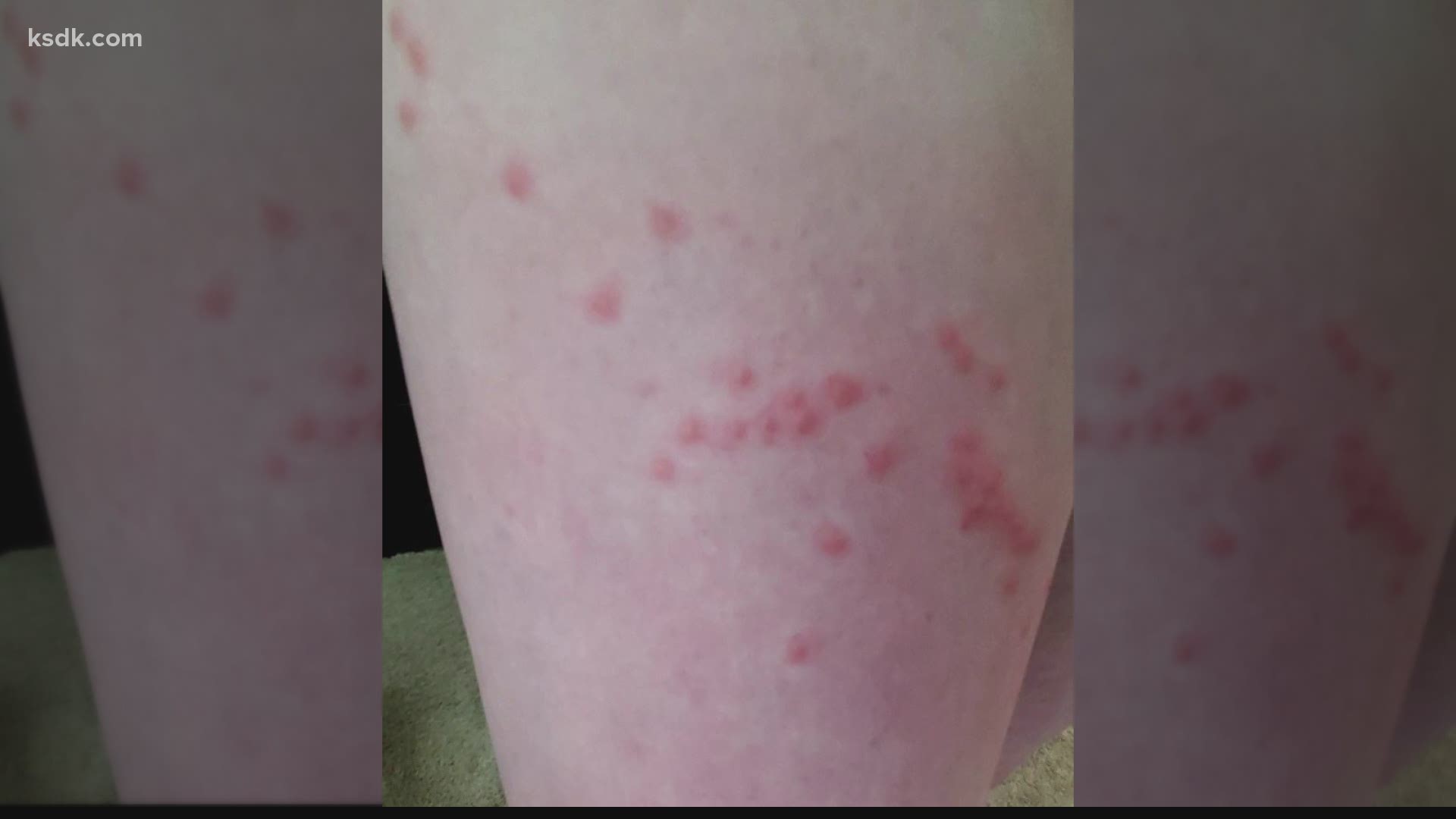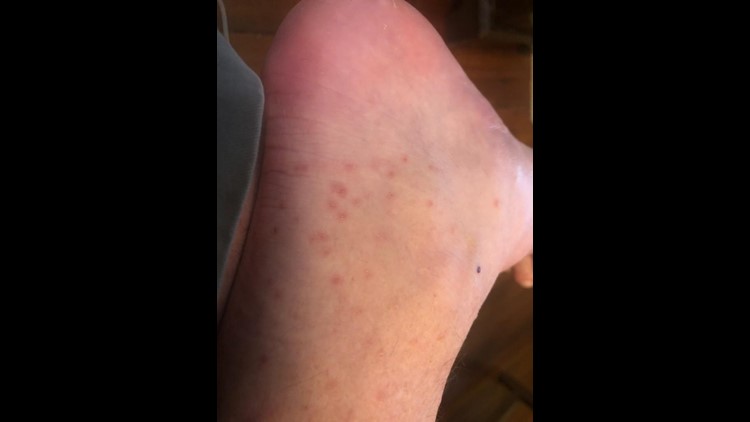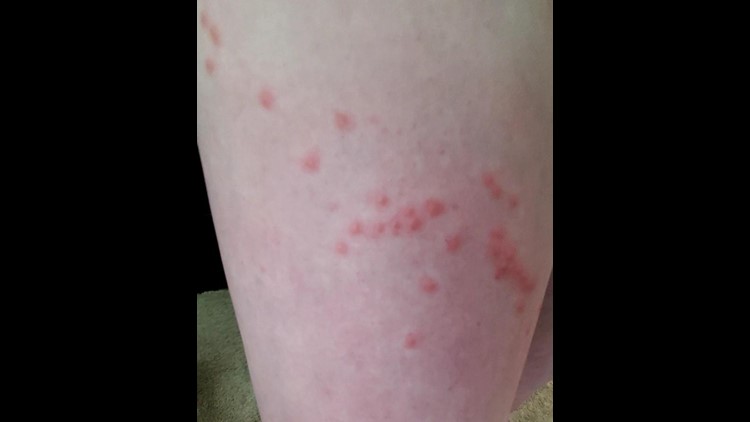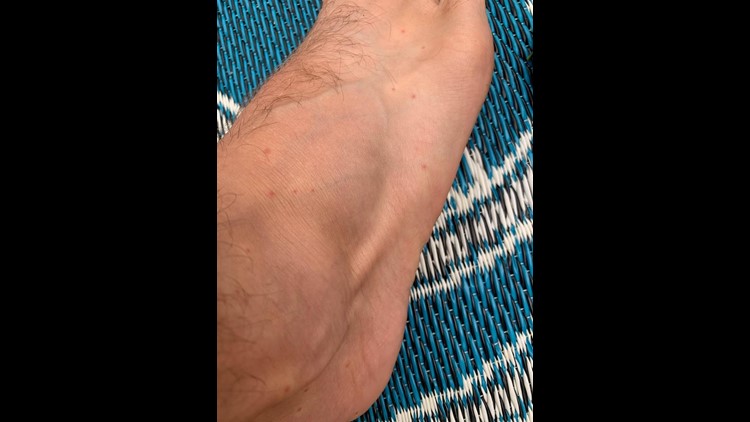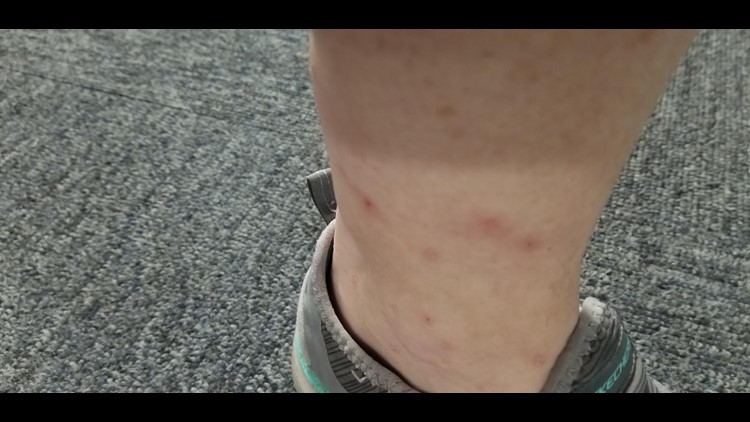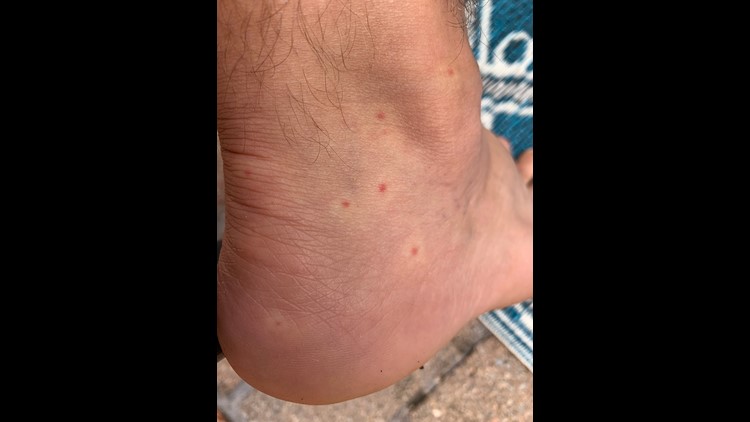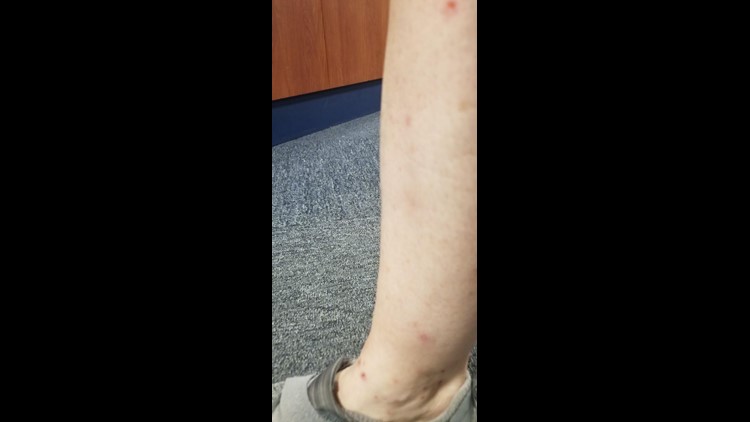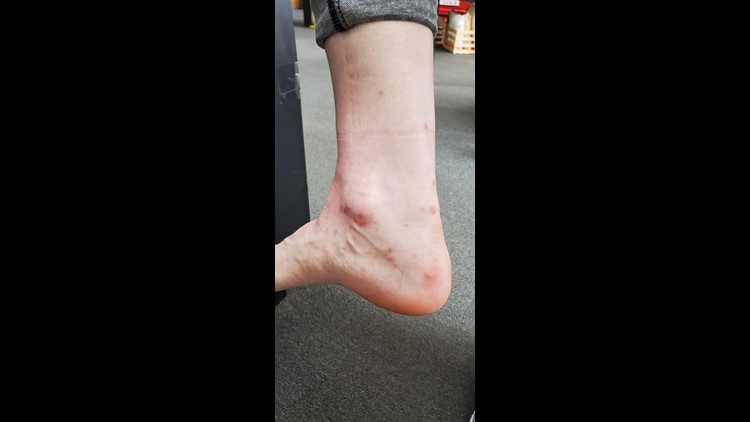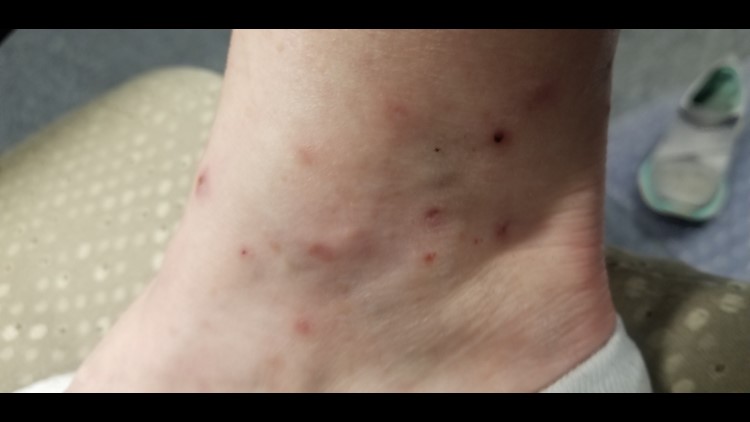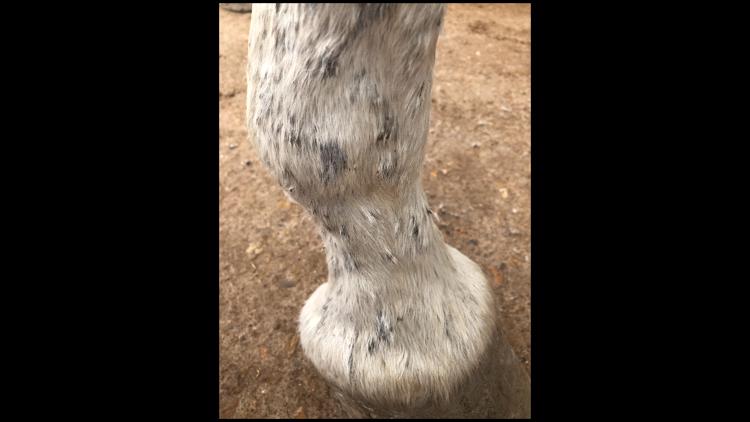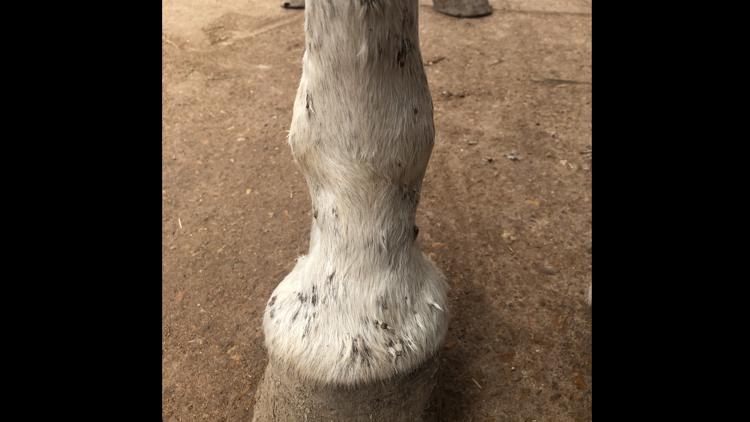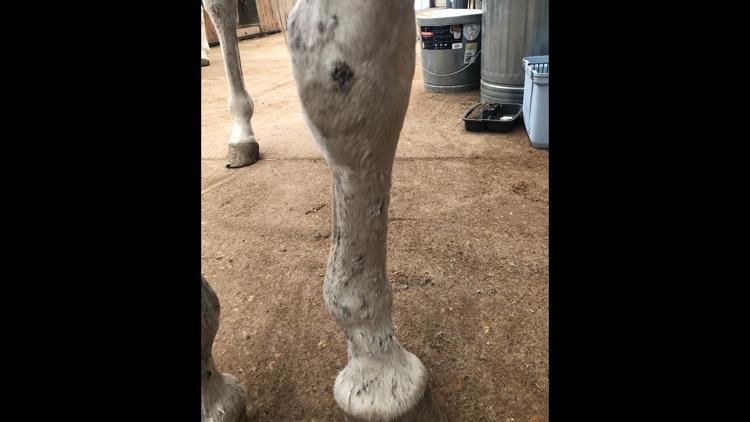ST. LOUIS — About 24 hours after a walk in the woods, Mandy Lehmann's legs, hips and waist were covered in small red dots.
"I felt like I had itching attacks. I would wake up in the middle of the night and it was uncontrollable itching," Lehmann said.
She thought she had rubbed up against poison ivy, but after a visit to urgent care she learned chiggers were the cause of her itchy affliction.
Chiggers are actually a type of mite and it's their larvae that cause the unpleasant bumps.
"So what they do is they actually secrete a digest enzyme that melts your skin," explains St. Louis Region Media Specialist Dan Zarlenga with the Missouri Department of Conservation, "And they basically eat your skin. Now of course they are 1/150th of an inch in size so they don't take a whole lot."
Zarlenga says chiggers are common in grassy and brushy areas, especially ones that are slightly damp and in the afternoons on warm days.
There is a season on chiggers:
- Less active when temperatures fall below 60 degrees
- Die when temperatures fall below 40 degrees
Dr. Megan Renner is a family medicine physician with SSM Health Medical Group in St. Charles County, she says the best way to handle chigger bites is to prevent them from happening in the first place.
"You want to make sure that your skin is covered. You can tuck your pant legs into your socks and that can help," Dr. Renner recommends, "And wearing bug spray also will help."
As you can see in the pictures below, Mandy Lehmann is not alone. Some of the 5 On Your Side crew found themselves covered in bites after venturing into the great outdoors.
Chigger bites on St. Louisans
She says most chigger bites won't require a trip to the doctor's office and to visit a pharmacist for over-the-counter remedies.
Mandy Lehmann's bites were so bad, she did end up seeing an urgent care doctor. "She told me to use hydrocortisone cream and she did put me on prednisone, which didn't do that much."
Lehmann's doctor told her it would take about two to three weeks to cycle through and start to heal up.
Animals are not immune to chigger bites either. Zarlenga says bug even goes after reptiles and amphibians. Our pets are also susceptible.
On dogs, the itching from chigger bites is often confused with fleas. "When the dog has a lot of hair it is really hard to tell," County Animal Hospital Veterinary Technician Kelly Hoerner told 5 On Your Side, "fleas are typically behind their ears, along their back and on their rump. Chiggers are more typically seen around their legs and underbelly."
She recommends treating your animal by bathing them with a soothing oatmeal shampoo and applying ice packs to provide immediate itch relief.
Even my horse was nailed by chiggers this past week. My vet came out on Wednesday and said to continue washing his legs with soothing shampoo. She also recommended covering the bites with a protective ointment like Desitin to keep the flies out.

